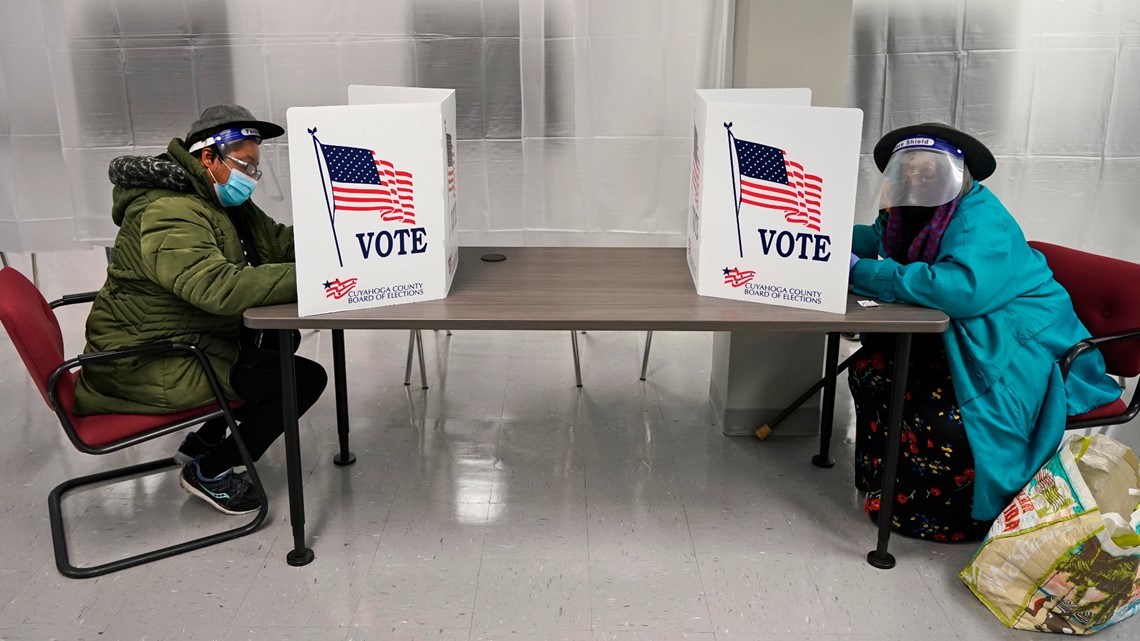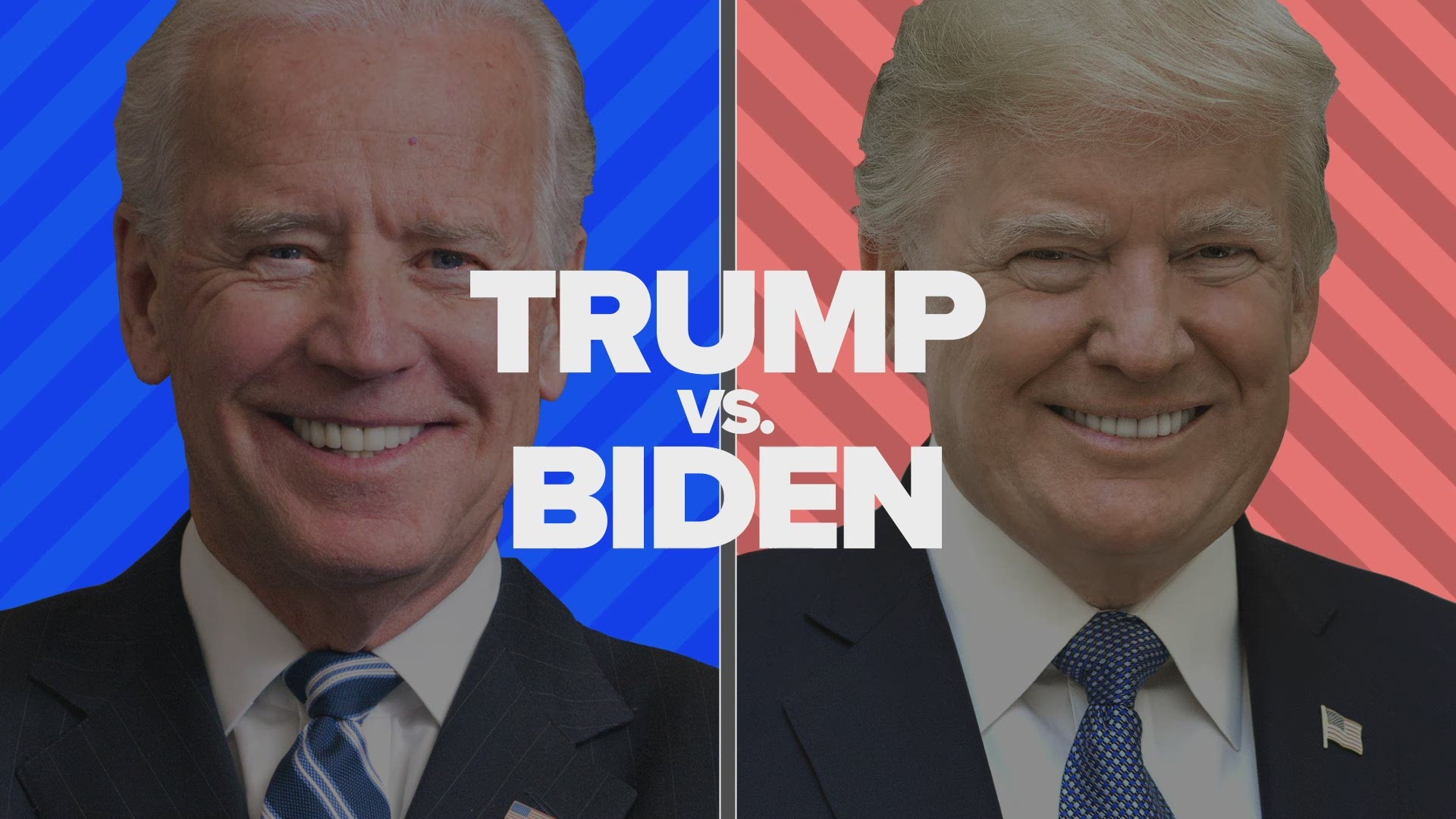WASHINGTON — With less than a week before the election amid the coronavirus pandemic, more than 73 million Americans have already voted, according to data compiled by the United States Elections Project.
The project says more than 48 million mail-in ballots have already been returned and there have been more than 24 million votes cast in-person during early voting across the country. The tally is already more than half of the total votes counted in the 2016 presidential election.
A poll in August by the Pew Research Center suggests that more Americans see the stakes as higher than usual in the 2020 presidential election. Twenty years ago, just half of the voters said it really mattered who won. As of August, 83% expressed this view.
Americans have been worried about the Nov. 3 election, an anxiety many haven't carried during years of largely peaceful displays of democracy.
With Election Day next week, voters can point to plenty of evidence behind the anxiety. More than 226,000 people have died of the coronavirus in the United States, and cases are spiking across the country. A summer of protests of racial injustice and sometimes violent confrontations has left many on edge. Gun sales have broken records. President Trump has called on supporters to monitor voting and has refused to commit to a peaceful transfer of power or to explicitly condemn a white supremacist group.
There was the alleged plot to kidnap Michigan Gov. Gretchen Whitmer and another spate of violent protest this week over a police shooting of a Black man in Philadelphia.
“Human beings don’t do well with uncertainty, and there’s been a lot of uncertainty this year,” said Mara Suttmann-Lea, an assistant professor of government at Connecticut College conducting research on voting. ”Absolutely I’m seeing heightened levels of anxiety ... and it's a more general, existential anxiety — ‘What is the state of our democracy?’"
Those worries have shown up in polling. About 7 in 10 voters say they are anxious about the election, according to an AP-NORC poll this month. Biden supporters were more likely to say so than Trump supporters — 72% to 61%.
Law enforcement and election officials are preparing, too. FBI and local officials in several states have been conducting drills and setting up command centers to respond to election-related unrest.
Election officials are training poll workers on how to de-escalate conflict and ensuring they're prepped on the rules about poll monitoring, voter intimidation and harassment.
“The procedures have always been there. We’ve just never had to use them,” said Ellen Sorensen, an elections judge in Naperville, Illinois, outside Chicago. “Perhaps this time we may. I don’t know.”



